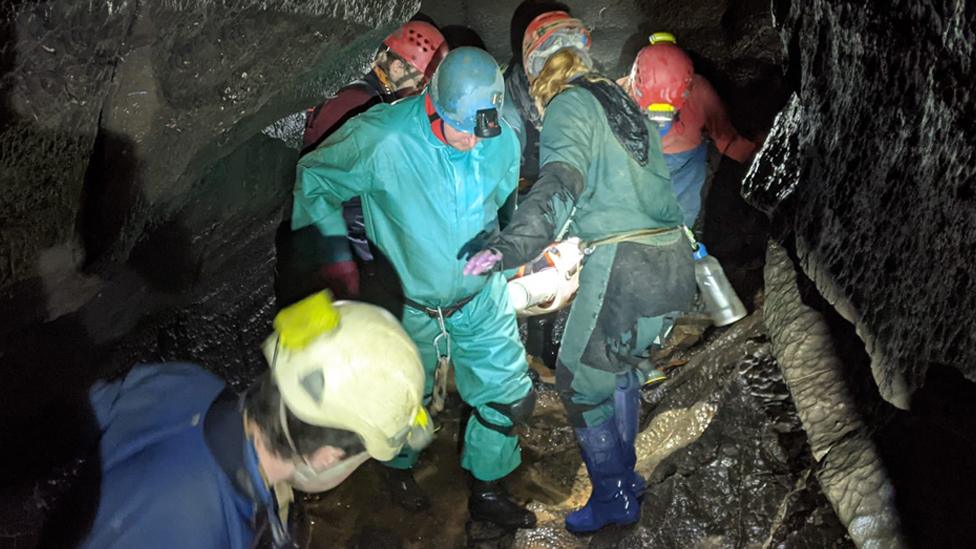'Some people play golf, some people play football - we go underground'
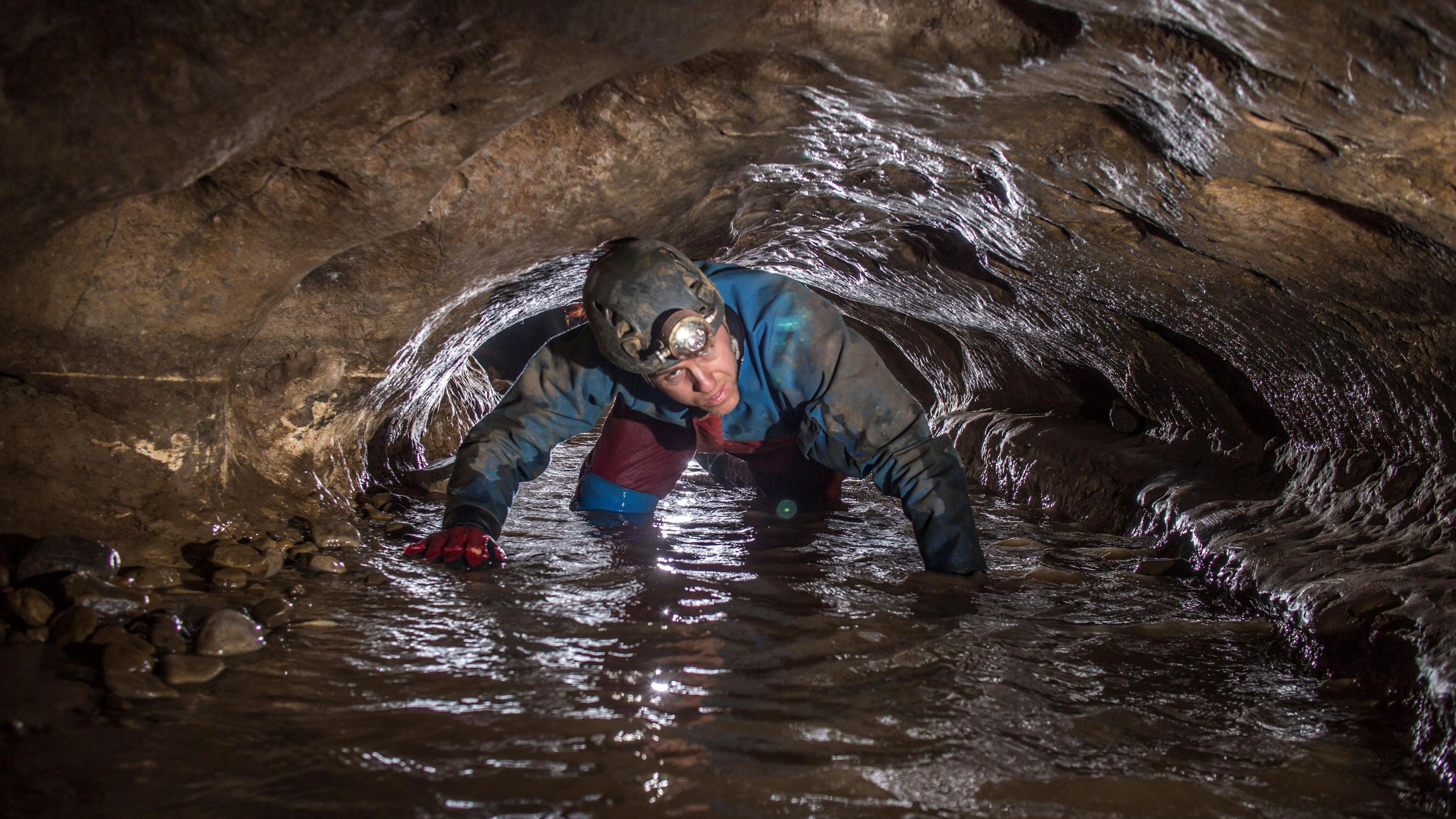
Matt Ewles says rescue incidents give caving a bad reputation
- Published
After an arduous 30-hour operation to save three men trapped underground highlighted the potential perils of caving, some may question its allure.
But for cavers in North Yorkshire - regarded among enthusiasts as "Britain's premier caving area" - the chance to explore ancient tunnels and caverns deep beneath the surface can be "utterly addictive".
"It's a hidden world and it's a beautiful, stunning world," says Martin Holroyd, who has been caving for 45 years.
The retired firefighter says his "passion" for underground exploration has taken him across the globe.
"I love it. It's one of the few affordable things where you can go and explore somewhere new."
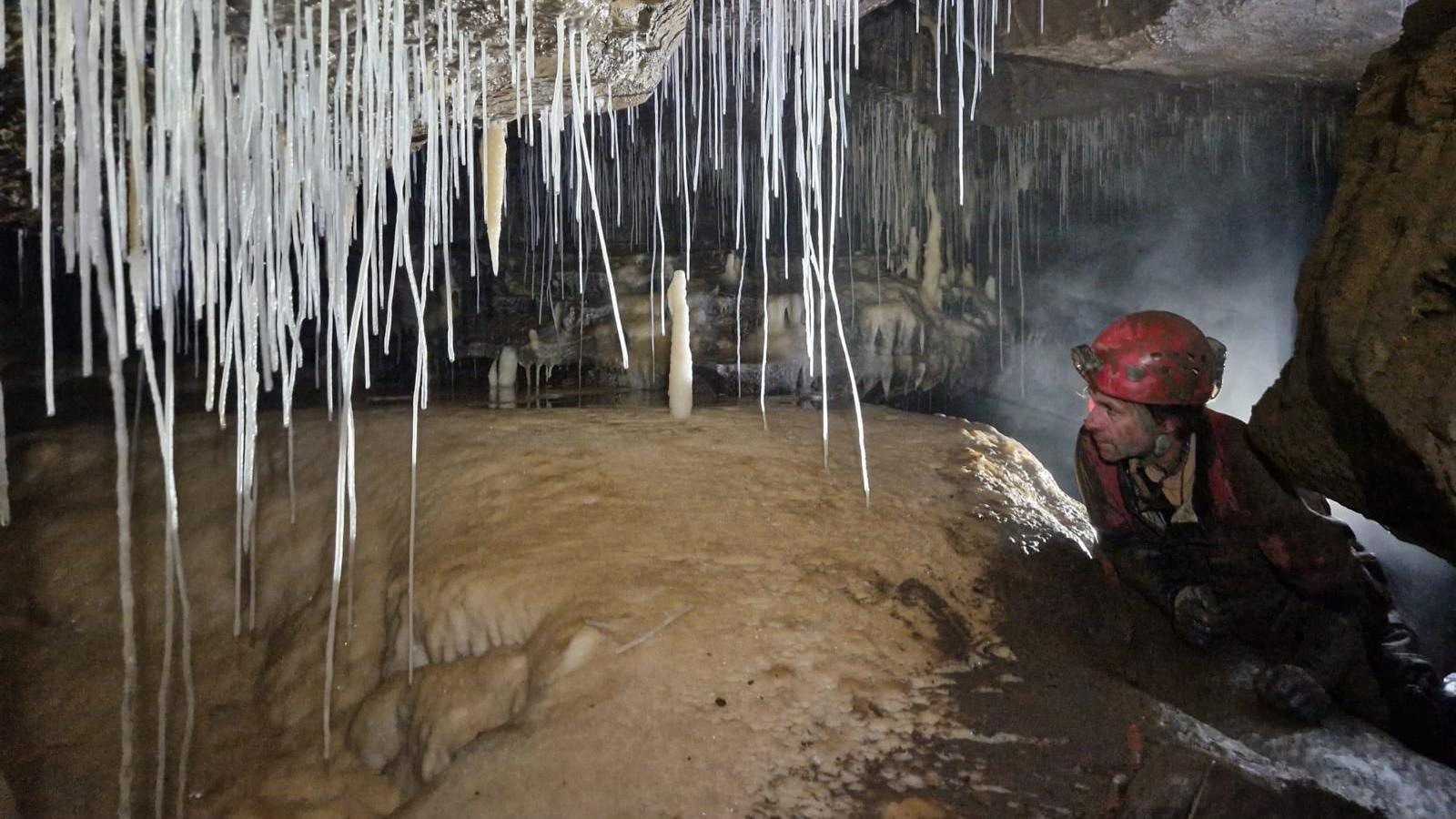
Martin has been caving for 45 years
For some people, just the thought of caving is enough to trigger claustrophobia, as bodies squeeze through impossibly narrow crevices.
But for Martin, a self-confessed lover of the outdoors, navigating through tight spaces is a price worth paying.
"If you want to see the real beauty with the cave you have to go underground. That's the real exploration.
"Sometimes, it's a means to an end. In certain caves, you have to go through a narrow restriction."
Some cavers actively seek out smaller caves for the physical challenge, he says.
"People like to push themselves and you can do the same with caving. If it's a difficult cave, it's part of the enjoyment.
"Some people play golf, some people play football. We all have our hobbies.
"There are a lot more things that put people at risk than caving."
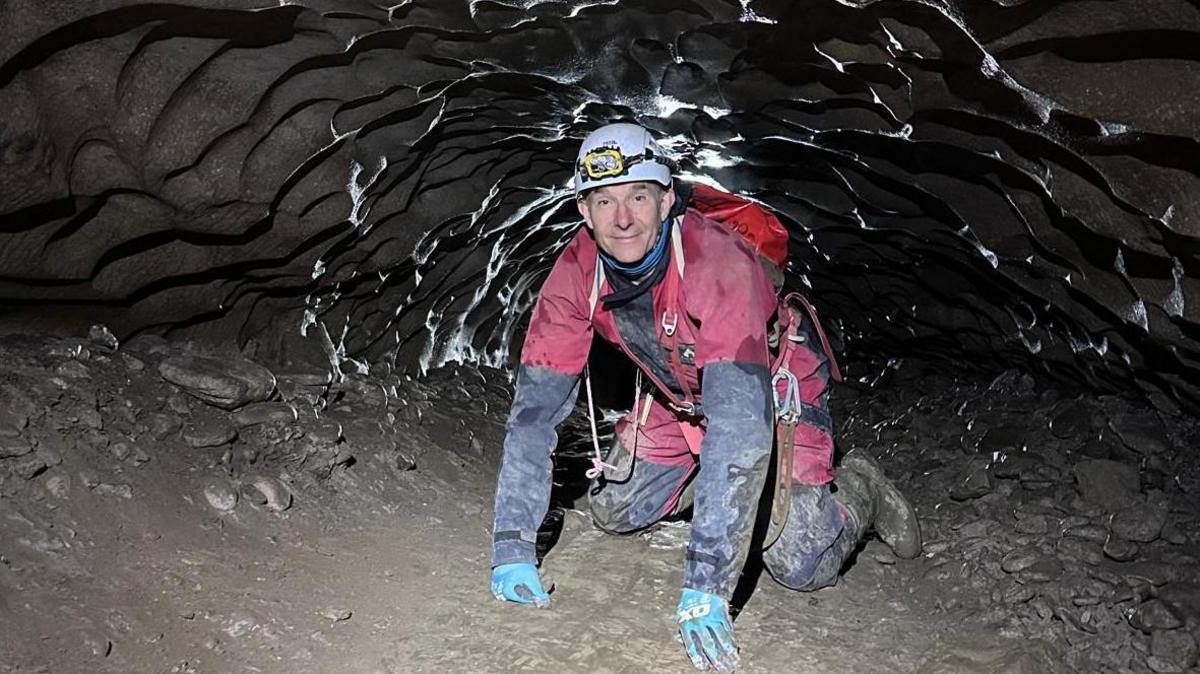
Martin Holroyd enjoys exploring the "beautiful" underground world
Matt Ewles, from York, said he has found a home in the caving community.
"It's a very small, very friendly, very close-knit community," says the 44-year-old, who was introduced to the activity by his future husband, Gary, 20 years ago.
"Most of my friends are cavers. You can have a day away from the world with your good friends - no mobile phones - and just focus on that friendship and enjoying that experience of going somewhere amazing and seeing something fantastic."
According to the Yorkshire Dales National Park, more than 2,500 caves have been discovered in the Dales.
"Walking down a passage and thinking 'I'm the first person in history to ever go there', you are literally going into the complete unknown," says Matt.
"I just find that utterly addictive, where else can you get that?"
Matt says rescue operations like the one at Dowber Gill Passage can give caving a bad reputation, despite the decision of the three men to go on the expedition being described as "perfectly reasonable" by the rescue leader.
"Caving tends to only reach the general public when there's a rescue. A lot of people get this impression of caving as really dangerous," he says.
"Caving is an extremely safe sport. The majority of trips go safely and without incident."
'Rescue's relatively rare'
Jake Stapleton is part of a team of volunteers at the Cave Rescue Organisation who provide the cave and mountain rescue service in the Three Peaks area of the Yorkshire Dales National Park.
He said the type of rescue which took place last week, requiring more than 100 volunteers, was "relatively rare".
"They are becoming less common," he says.
"Caving, for a lot of reasons, has become much safer over the years. From the equipment used to things like weather forecasting, being able to look further ahead and plan things."
A spokesperson for the British Caving Association, the national body for underground exploration, said anyone interested in caving should get in touch with a local club or guide.
"Caves are our last true wilderness on our doorstep and can be incredibly unforgiving places, even if you know what you are doing."
- Published5 October
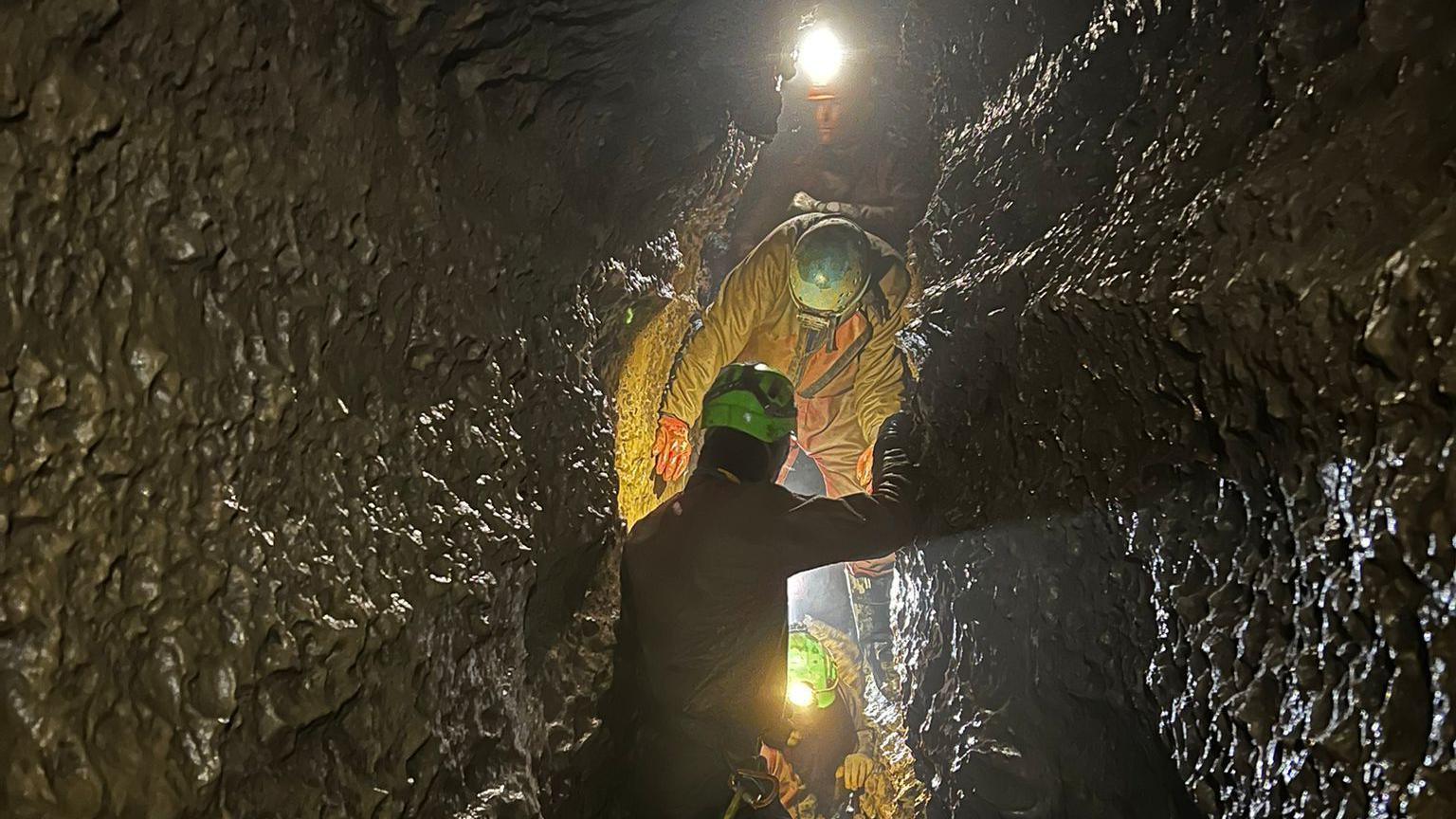
- Published23 July
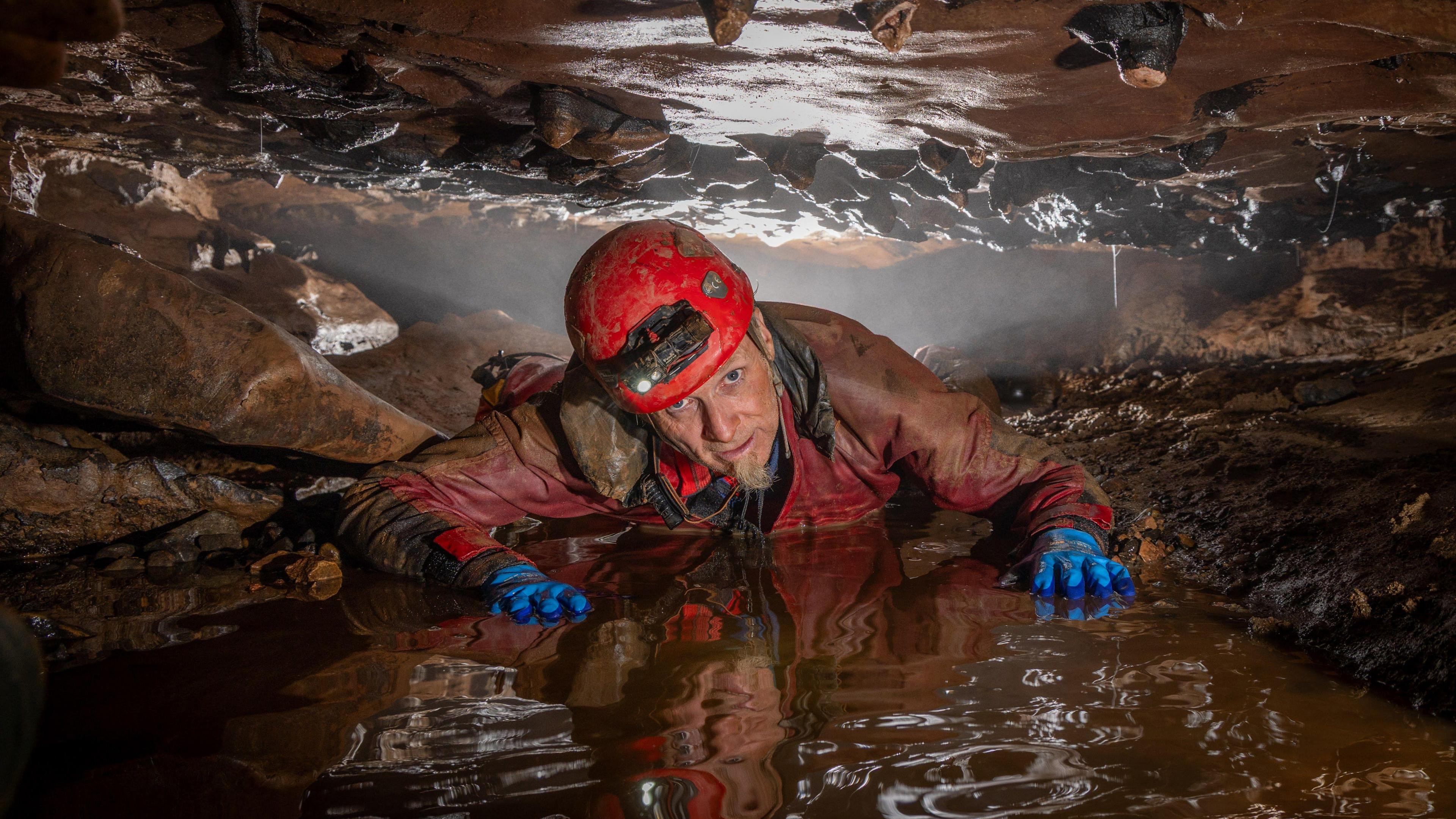
- Published10 November 2021
